
On 3-4 October, the EXTRACT project held its final event for the PER use case as part of The First Three Days event in Venice, co-organized with .Feel.
This two-day event brought together local and international policy makers, technology creators and first responders to discuss the critical first 72 hours following a major crisis. In this context, EXTRACT was well-received and used the opportunity to run the technical validation of its technology for personalized evacuation routing in Venice, in collaboration with retired first responders. The event also featured presentations from Eduardo Quiñones (BSC), Enrico Gavagnin (Metropolitan City of Venice) and Emanuele Bellini (Logos), who shared the project’s latest advancements.
The event sought to explore how GovTech solutions can empower the public sector to strengthen security, protection, and defense through civic engagement. The event opened with speeches from a panel of experts from national and European institutions who presented the general context of the initiative, defining the main challenges and resources available from diverse perspectives.
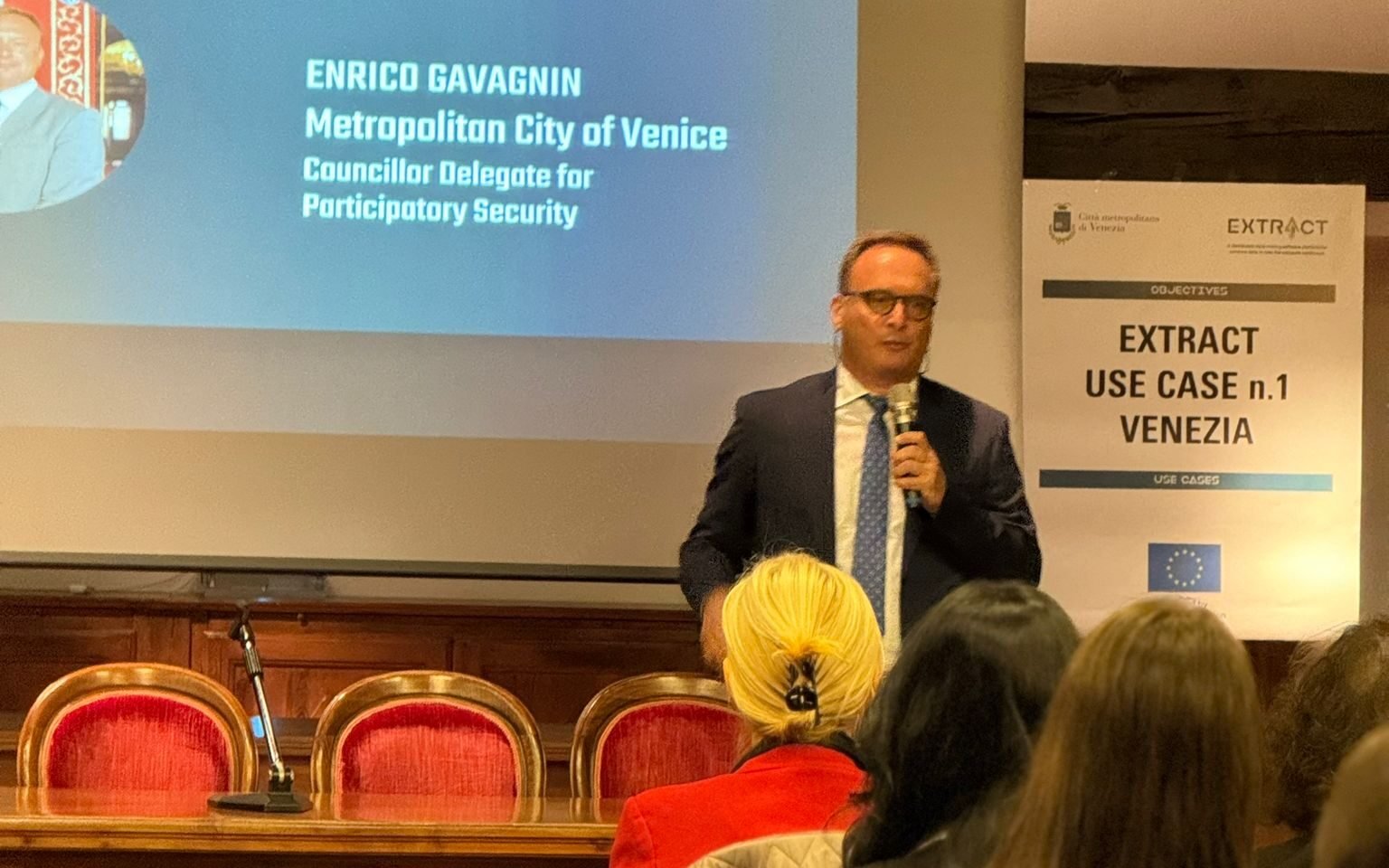
Enrico Gavagnin (Metropolitan City of Venice) presenting at The First Three Days
This was followed by a civic hackathon, a facilitated session that focused on the co-design of digital and organizational solutions aimed at empowering citizens to act decisively and effectively during the first 72 hours of a crisis. The full agenda can be found here.
Citizen engagement: Testing EXTRACT technology with retired security personnel on the ground in Venice
The EXTRACT technical validation was run in parallel to the civic hackathon and included the testing of the mobile application developed for the personalized evacuation route. Under the coordination of Simone Naldini (MATHEMA), volunteers participated in an evacuation drill. After a short briefing, participants received a push alert via the app, triggering the simulation. Each volunteer then received their personalized evacuation route, displayed through the app. The test area was defined by MATHEMA and LOGOS in collaboration with the Metropolitan City of Venice.
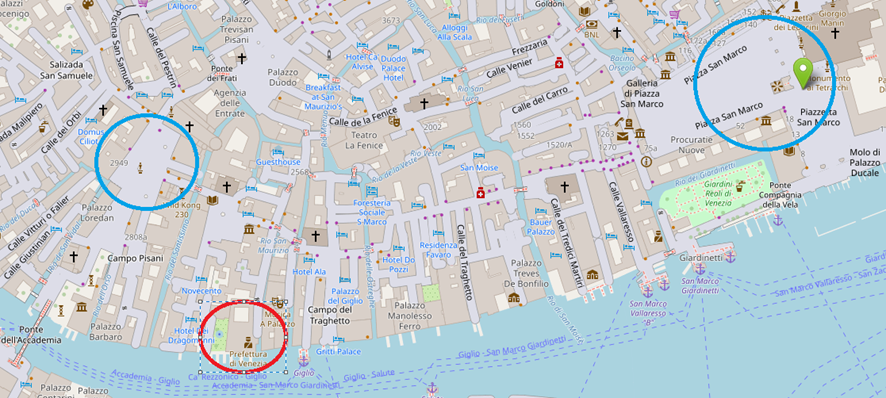
Test area for the personalized evacuation route
Following the simulation, volunteers completed an evaluation survey assessing usability, clarity of instructions, responsiveness, perceived safety, and overall user experience. The feedback proved invaluable for refining the application and identifying potential improvements.
The volunteer group, composed of retired security officers, were also honoured during a recognition ceremony the second day, led by Enrico Gavagnin, as a gesture of appreciation for their service and collaboration with the EXTRACT project.
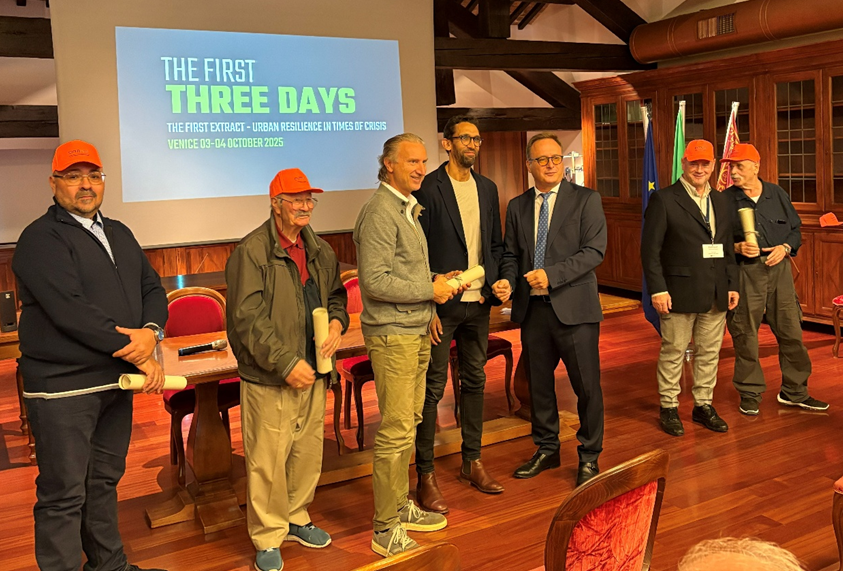
Retired security officers during the recognition ceremony led by Enrico Gavagnin (Metropolitan City of Venice)
The F3D Summit: Presenting EXTRACT results to international experts
In the afternoon session, EXTRACT representatives presented the PER use case results during the F3D Summit, which featured presentations from top urban and resilience experts from the US Army Corps of Engineers, CMCC Foundation, Dubai Electronic Security Center and UN-Habitat.
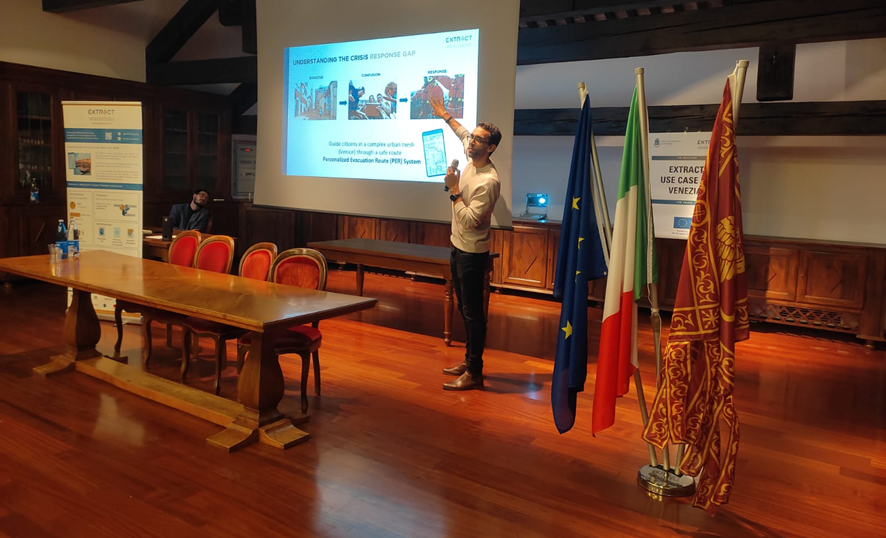
Eduardo Quiñones (BSC) presenting “From Crisis to Action: How AI and Data Technologies are Closing the Reaction Gap at “Moment Zero””
Eduardo Quiñones, EXTRACT coordinator, provided an overview of the project and explained how the developed technology contributes to making cities smarter by optimizing decision-making through the collection, processing, fusion, and semantic annotation of data from multiple sources. This data-driven approach enables more precise, faster, and personalized crisis management.
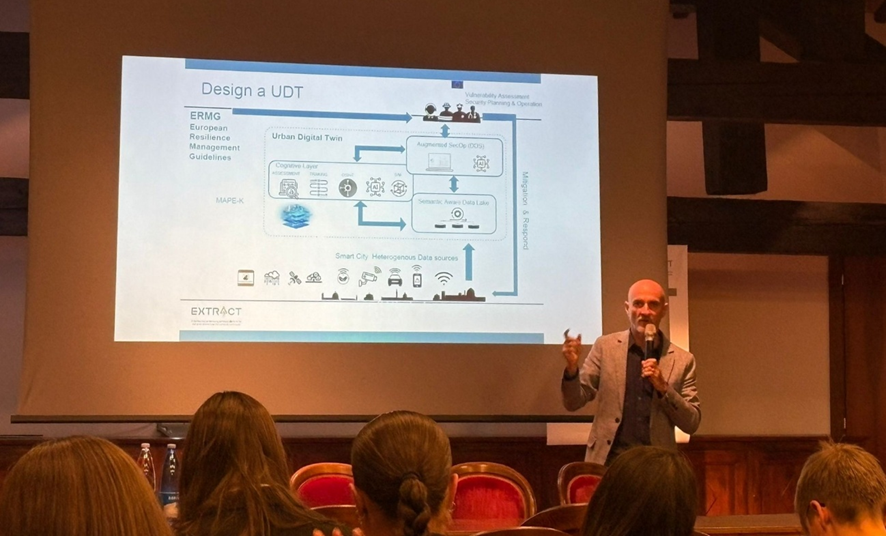
Emanuele Bellini (Logos) presenting “Operationalize Resilience in Smart Cities through Self-Adaptive Hybrid Urban Digital Twin”
Emmanuelle Bellini (LOGOS-RI) presented the concept of the Urban Digital Twin, using the example of Venice. He demonstrated how a hybrid, self-adaptive digital urban twin can operationalize resilience in smart cities. Currently, the EXTRACT UDT is now in its final development phase and will allow emergency planners, public authorities, and AI systems to interact with urban data more dynamically, improving both real-time response and long-term preparedness.
The First Three Days not only served as a platform to promote civic engagement in crisis management, but also as a live demonstration of EXTRACT’s technological achievements. After three years of research and development, the project has proven its potential for real-world application, exploitation, and sustainability, offering innovative tools that can transform emergency response in urban environments and strengthen the resilience of future cities.
